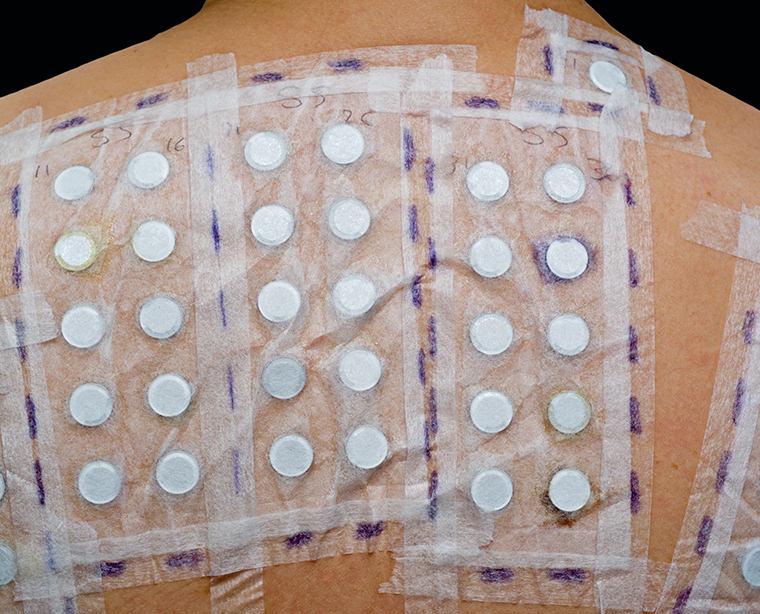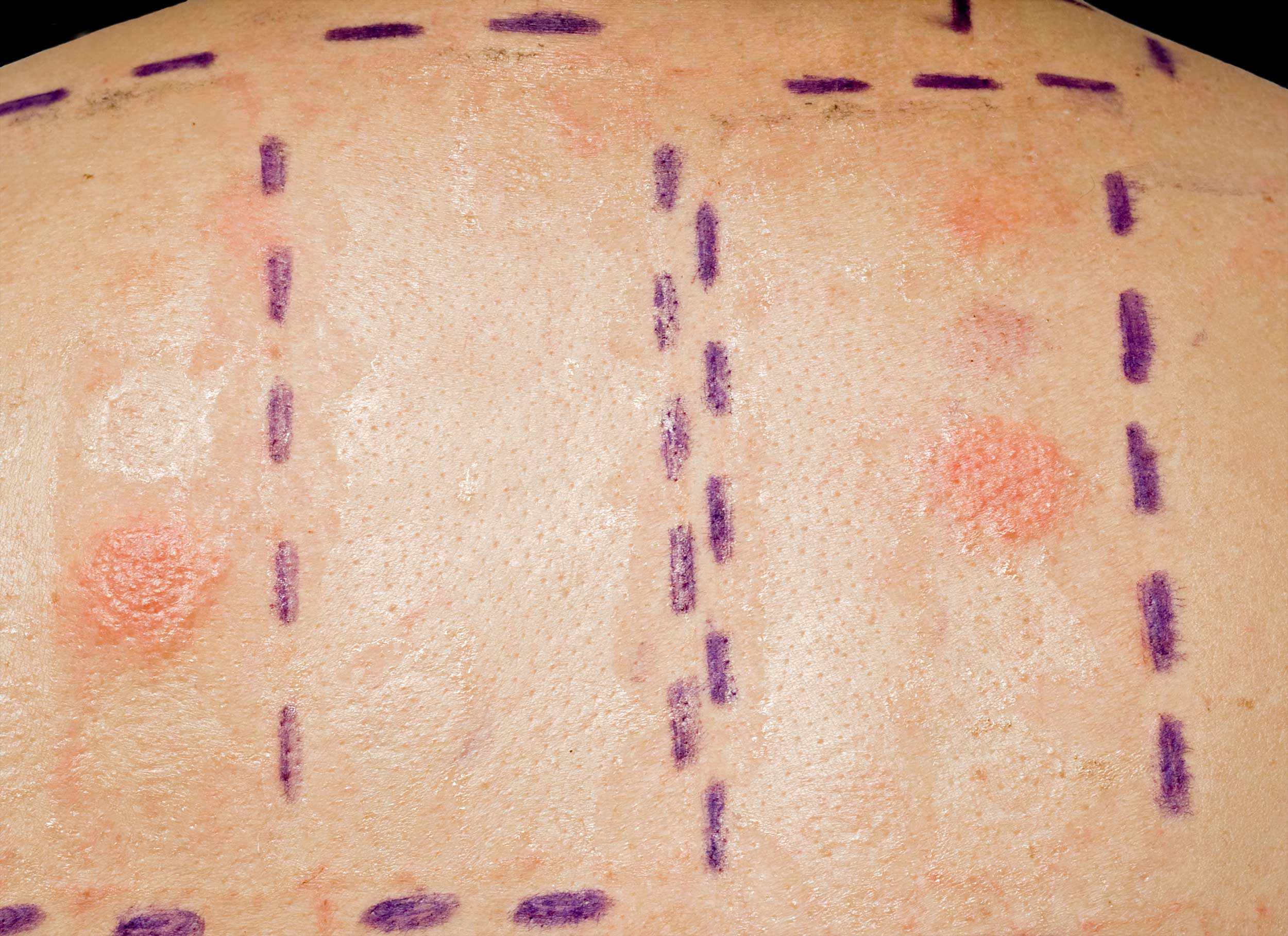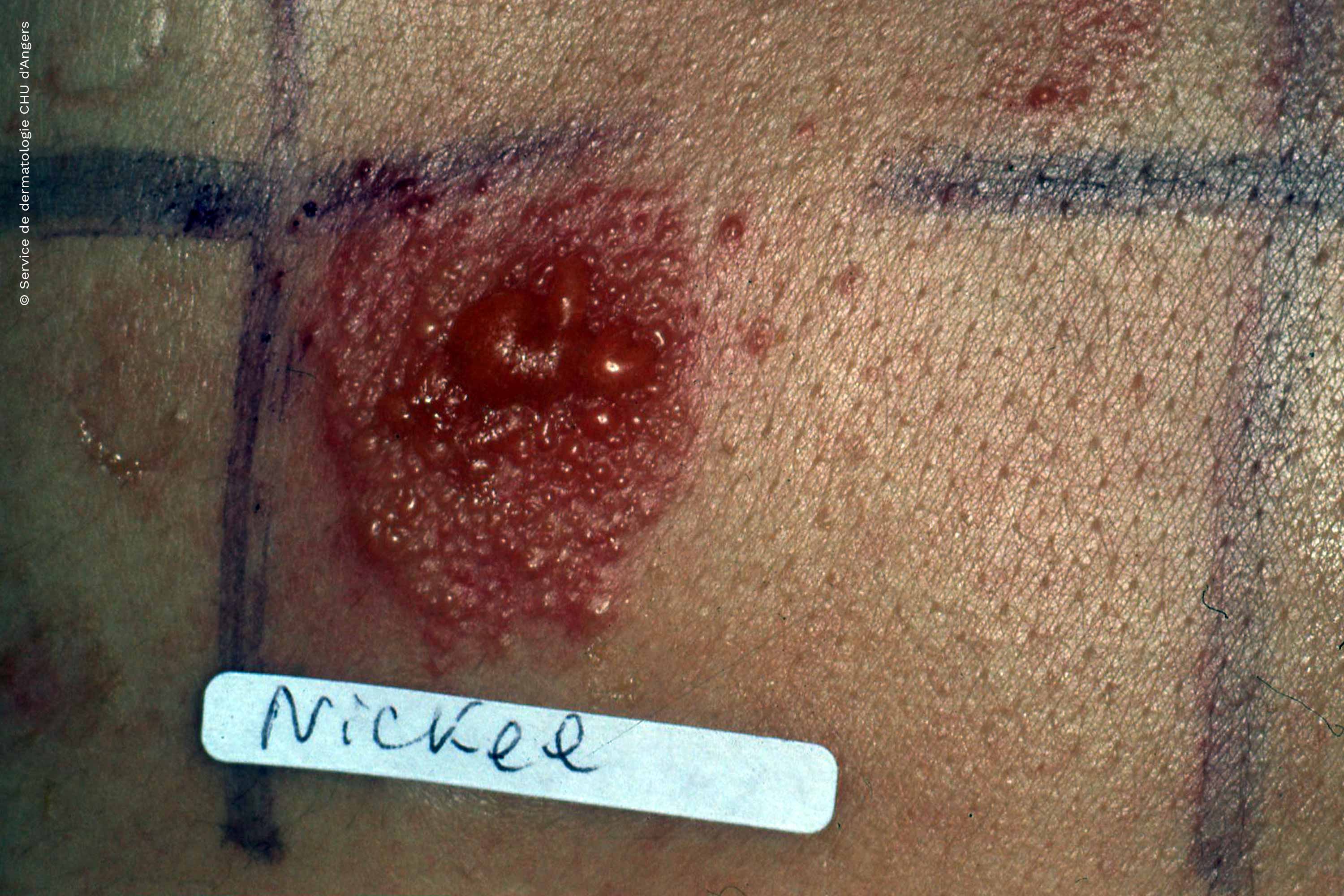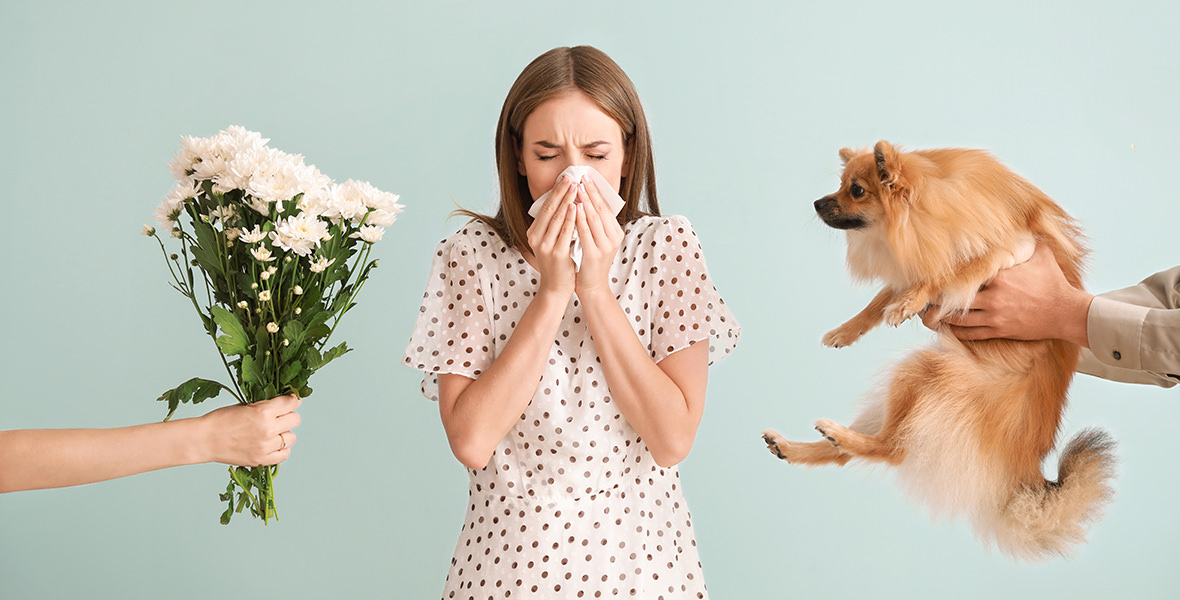

Identifying the cause of eczema through allergy tests

Skin tests: a key step in treating allergic contact eczema
If eczema is linked to a contact allergy to a product or object, your doctor will conduct tests to detect the allergen responsible. They will then advise you on how to avoid the allergen, which is most likely found in multiple objects or products in your daily life.
Patch tests, a widely used tool
Objective: to identify the cause of a skin allergy
The most common and the easily identifiable contact allergy is a reaction to costume jewelry. This is indicative of an allergy to nickel (found in certain metal objects). This allergen will be tested to verify whether it should be avoided in your day-to-day life. Your doctor will also investigate by asking several questions about your daily activities and, most importantly, will conduct tests on the skin to see if you react to certain allergens: these are known as “patch tests” (also known as “epidermal tests”). If the allergen is difficult to pinpoint, it is important to consult a dermato-allergologist, as testing is the only means of confirming the cause of the allergy.
Example of a positive test patch :
A completely painless test
The test is carried out by placing various substances on the back, in small chambers held on using an adhesive film. The reaction is hardly immediate and can take up to 48 hours to appear: your allergologist will see you two or three days later to confirm whether certain allergens triggered any reactions involving redness. You may experience some itching, but it goes away soon enough!
Test for dozens of allergens
The list of substances known to cause allergies is very long. Such substances are commonly used in cosmetics and cleansers, jewelry, bandages, colorants and even musical instruments! The standard routine test battery covers about twenty of the common allergens.
Are you exposed to less common allergens through your work or activities? The specialist will have noted this through the questionnaire and may carry out additional tests.
In case of a negative result, a ROAT may be recommended
If an allergy is strongly suspected but is not confirmed by the patch test, a ROAT (Repeated Open Application Test) may be carried out. You will be asked to apply the product to a small area of the forearm over the course of several days to see if a repeated application triggers redness.
How can you prepare for a skin test?
Below are a few precautions you can take to ensure the best possible conditions for your patch tests:
- Plan for three appointments (test application, first assessment, second assessment)
- Advise your doctor if you have an eczema flare-up before the tests, which could complicate the application of the test and make it impossible to analyze the results
- Ten days before the test, stop applying prescribed topical corticosteroids to your back as part of your eczema treatment
- Tell your doctor if you are undergoing immunosuppressant treatment or general corticosteroid therapy, in which case the tests cannot be done
- Avoid any sun exposure on your back in the days prior to the tests
- Avoid any activity or situation that would lead to significant sweating once the tests have been applied, including sports
- For the first day of the results analysis, be sure to wear clothes that you don’t mind getting ruined, as the tests are labeled with a marker which may leave stains
- Remember to bring the products or objects that you use at home or at work. This will keep you from having to come back!
Based on the results, the list of products to avoid
Have the tests confirmed your doctor’s hypothesis? If the allergens responsible for your reactions have been identified, you will need to avoid them in the future. They may be found in all kinds of products. The specialist will explain where and how to find them, in addition to providing information sheets on how to avoid each one. They may also provide you with a list of products (particularly for cosmetics) that do not contain the allergen and are thus safe for you to use.
If your eczema is work-related and the allergen is part of your work environment, your doctor may issue you an occupational sickness certificate to support your request for leave if desired.



